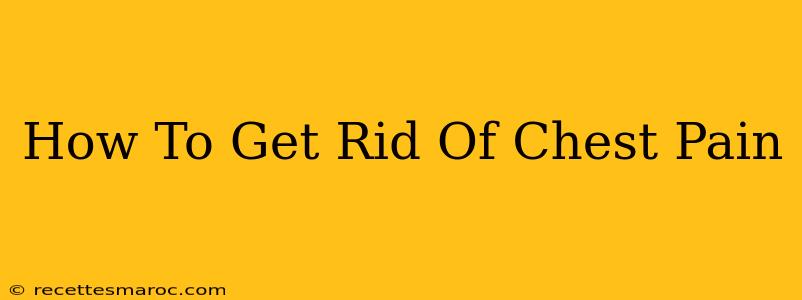Chest pain can be a frightening experience, prompting immediate concern. While some chest pain is harmless, it's crucial to understand the potential causes and when to seek immediate medical attention. This guide explores various reasons for chest pain, provides home remedies for less serious cases, and emphasizes the importance of professional medical evaluation when necessary.
Understanding the Causes of Chest Pain
Chest pain can stem from numerous sources, ranging from mild to life-threatening. Knowing the potential causes is the first step in determining the appropriate course of action.
Common Causes of Chest Pain:
- Musculoskeletal Problems: Muscle strains, rib cartilage inflammation (costochondritis), and other musculoskeletal issues are frequent culprits. These often present as sharp, localized pain that worsens with movement.
- Heartburn (Acid Reflux): A burning sensation in the chest, often accompanied by a sour taste in the mouth, is a classic symptom of acid reflux. This pain usually occurs after eating and may radiate to the throat.
- Anxiety and Panic Attacks: Psychological stress can manifest as chest pain, often accompanied by shortness of breath, rapid heartbeat, and feelings of impending doom.
- Lung Conditions: Respiratory infections like bronchitis or pneumonia can cause chest pain, often accompanied by coughing and shortness of breath. Pleurisy, inflammation of the lung lining, can also result in sharp, stabbing chest pain.
- Heart Conditions: This is the most serious potential cause. Chest pain associated with heart problems (angina, heart attack) can manifest as pressure, tightness, squeezing, or crushing pain in the chest, often radiating to the arm, jaw, or back. This requires immediate medical attention.
Home Remedies for Mild Chest Pain
If your chest pain is mild and you suspect it's due to muscular strain, acid reflux, or anxiety, the following home remedies may offer relief:
- Over-the-counter pain relievers: Ibuprofen or acetaminophen can help reduce pain and inflammation from muscular issues.
- Antacids: For heartburn, antacids can neutralize stomach acid and provide quick relief.
- Relaxation techniques: Deep breathing exercises, meditation, or yoga can help manage anxiety-related chest pain.
- Heat or cold packs: Applying a warm or cold compress to the chest may soothe muscle pain.
- Improve posture: Maintaining good posture can alleviate muscle strain and reduce chest discomfort.
Important Note: These remedies are for mild, non-serious chest pain. They should not be used if you suspect a heart condition.
When to Seek Immediate Medical Attention
Do not delay seeking medical attention if you experience any of the following:
- Severe, crushing chest pain: This is a hallmark symptom of a heart attack.
- Chest pain accompanied by shortness of breath, sweating, nausea, or dizziness: These symptoms may indicate a serious medical problem.
- Sudden onset of severe chest pain: This warrants immediate medical evaluation.
- Chest pain that radiates to the arm, jaw, neck, or back: This is a classic sign of a heart attack.
- Chest pain that worsens with deep breaths or coughing: This might indicate a lung issue.
Preventing Chest Pain
While not all chest pain is preventable, adopting a healthy lifestyle can significantly reduce the risk of many contributing factors:
- Maintain a healthy weight: Obesity increases the risk of heart disease and acid reflux.
- Eat a balanced diet: A diet rich in fruits, vegetables, and whole grains supports overall health.
- Regular exercise: Physical activity strengthens the heart and improves cardiovascular health.
- Manage stress: Stress reduction techniques can lessen the likelihood of anxiety-related chest pain.
- Quit smoking: Smoking significantly increases the risk of heart disease and lung problems.
Disclaimer: This information is for educational purposes only and does not constitute medical advice. Always consult a healthcare professional for any concerns about your health. This article does not replace the need for a proper medical diagnosis and treatment. Self-treating can be dangerous. If you experience chest pain, seek professional medical help immediately.

